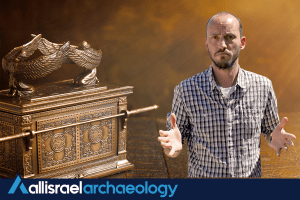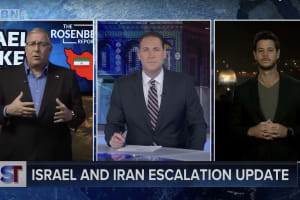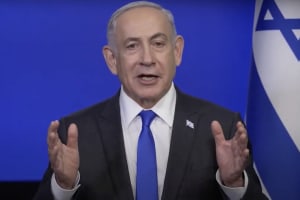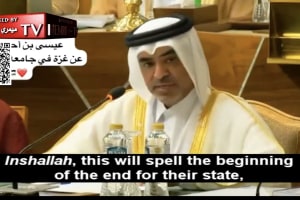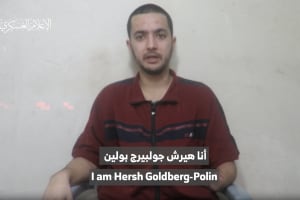Miraculous and Prophetic: In 2020, God answered the prayers of millions of Christians praying for 'the peace of Jerusalem'
How should we be praying now – and what is next? My reflections on an extraordinary day at the White House, and why it matters for the future

JERUSALEM—Two years ago today was one of the most fascinating, humbling and spiritually moving days of my life.
I was sitting on the South Lawn of the White House, watching as the foreign ministers of the United Arab Emirates and the Kingdom of Bahrain signed the Abraham Accords with the prime minister of Israel.
And reporting it all in real time for ALL ISRAEL NEWS.
Make no mistake: that day was a miraculous and prophetic moment.
Everyone in Washington knew that no such peace deals had been achieved in decades.
What’s more, most people in Washington had become understandably cynical about the “Arab-Israeli peace process,” believing that no such deals would happen in their lifetime, or at least not for many years to come.
Yet in a single day, the God of Israel answered the cry of millions of Evangelical Christians all over the world.
Christians who had been praying for decades for the peace of Jerusalem, because believers are commanded to do so in Psalm 122.
Christians who had been praying and working for peace in the Epicenter because in Matthew 5 the Lord Jesus Christ told His disciples, “Blessed are the peacemakers.”
Throughout the Holy Scriptures, we discover that the God of Israel is a prayer-hearing and a prayer-answering God; a God who works wonders and does miracles.
Bible prophecy also makes clear – particularly in Ezekiel 38 – that in the “last days,” Israelis will not be terrified and traumatized by constant wars and terrorism but will be “living securely” in their land.
That is, until a Russian-Iranian military alliance comes to attack, consume, and destroy Israel – an eschatological conflict known as the “War of Gog & Magog.”
But first, the ancient Hebrew prophet Ezekiel makes clear, peace, calm and security must come to Israel.
For decades, I had been writing, speaking and preaching about such prophecies.
Now, here I was at the White House with a front-row seat to history.
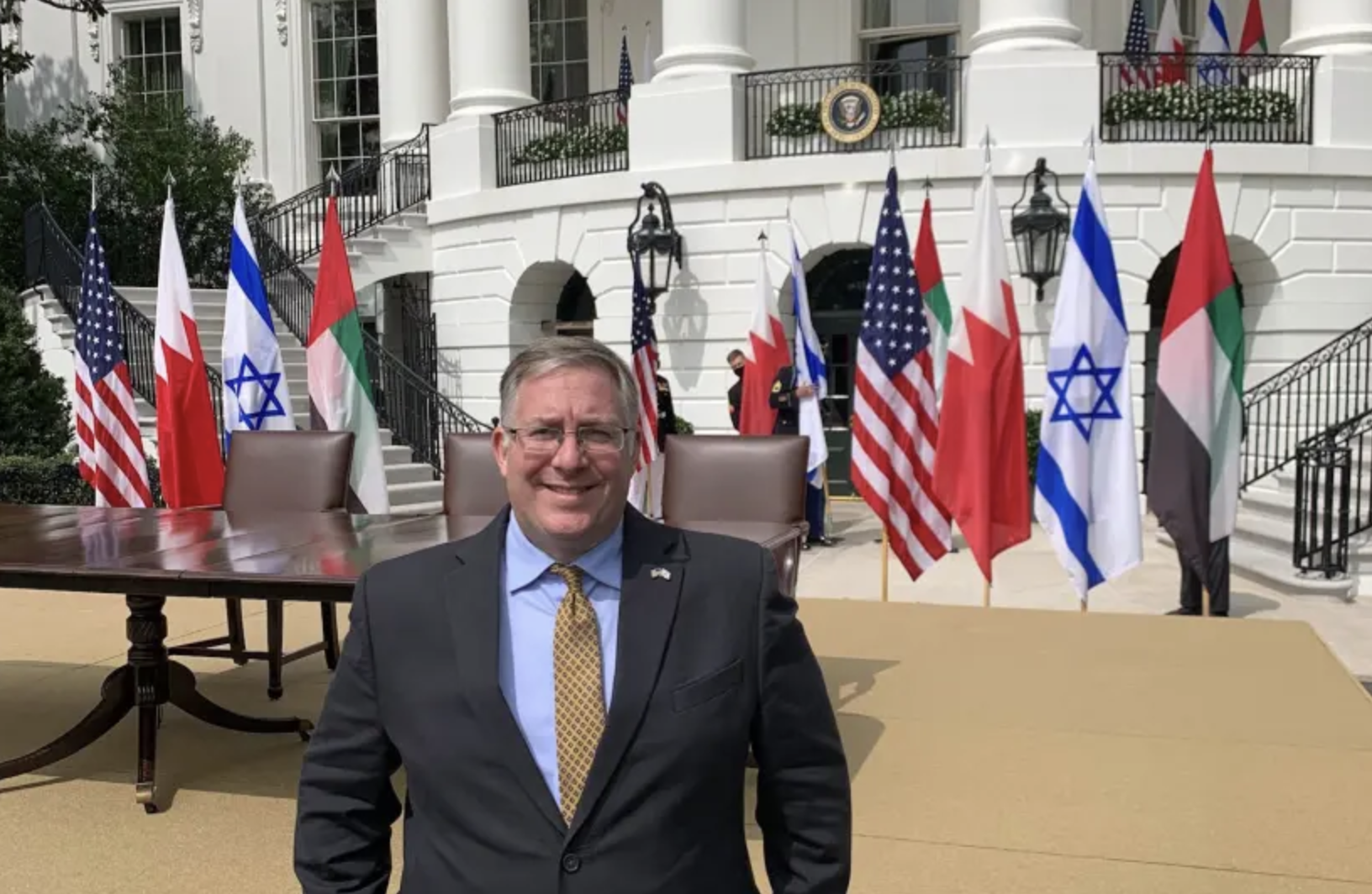
The last time an Arab leader made peace with Israel was in October 1994, when Jordan’s King Hussein signed a peace treaty with Israeli Prime Minister Yitzhak Rabin.
So when Donald J. Trump took office and said he wanted to broker Arab-Israeli peace treaties, nearly every Middle East “expert” in Washington said it absolutely could not be done – especially not the way Trump and his team wanted to do it.
Critics argued the Trump team was too inexperienced, too naïve, too Jewish and too arrogant to broker deals that the “experts” had failed to achieve for decades.
Yet to everyone’s shock, after a quarter of a century, two Arab nations were normalizing relations with the Jewish state – and purposefully refusing to allow intransigent Palestinian leaders veto the peace process.
Two more Arab countries – Morocco and Sudan – would follow in short order.
And Kosovo – a non-Arab but Muslim-majority country – would normalize relations with Israel in 2020, as well.
In my book, "Enemies and Allies: An Unforgettable Journey Inside The Fast-Moving & Immensely Turbulent Modern Middle East," I describe the inside story of how these extraordinary Abraham Accords came to pass.
Today, ALL ISRAEL NEWS publishes an extended excerpt.
Why?
So that we remember that game-changing day.
And to remind us to not let up in our prayers. We should continue to ask God to keep moving miraculously and prophetically to bring other Arab and Muslim countries into peaceful relations with Israel in this exciting and immensely challenging “last days” of history.
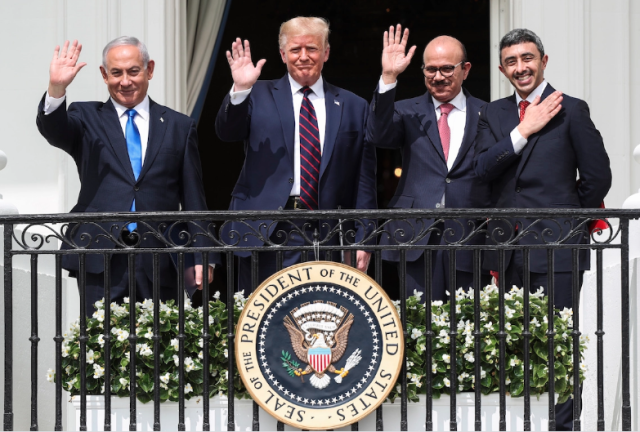
Here is the excerpt:
AN INVITATION FROM THE WHITE HOUSE
On Saturday, September 12, I received an email from the White House.
“The president requests the pleasure of your company at the Abraham Accords Signing Ceremony to be held at the White House on Tuesday, September 15, 2020, at twelve o’clock.”
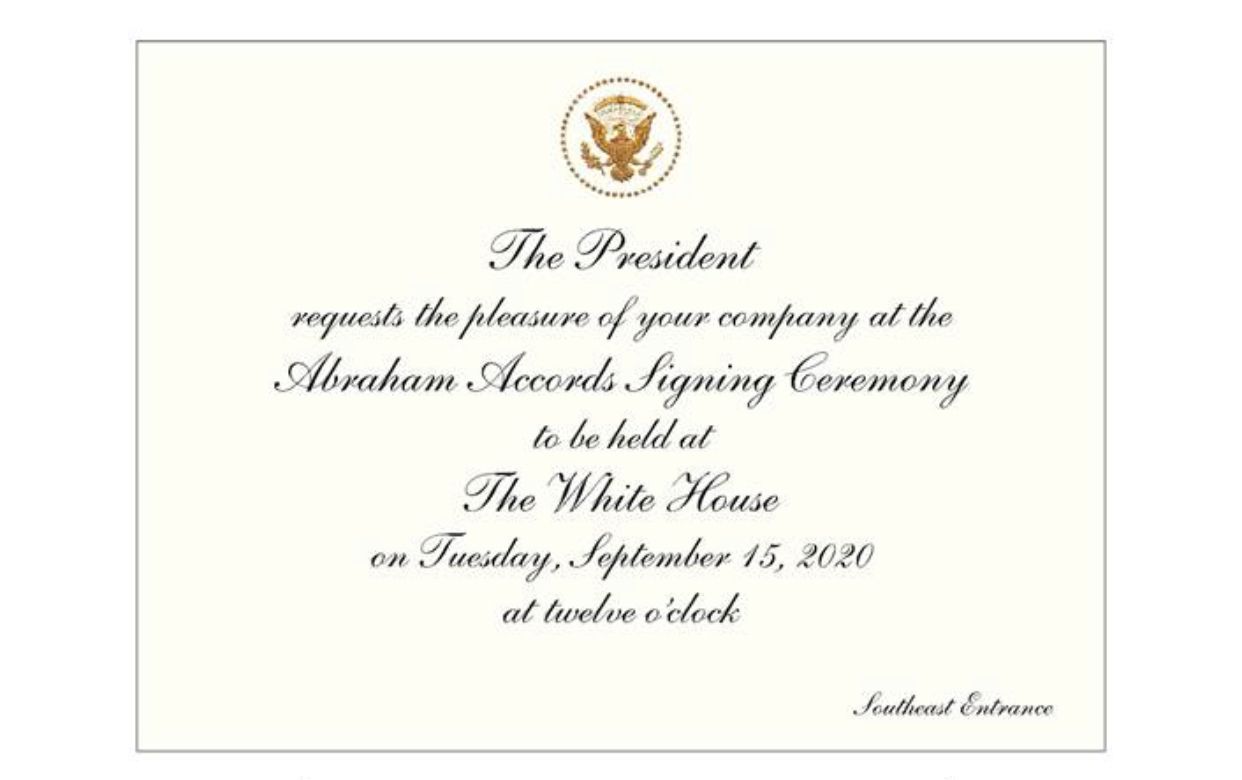
I immediately accepted and flew to Washington.
On that remarkable day, Skip Heitzig and I met for a time of prayer at a nearby hotel and then headed to the White House. Skip is not only a dear friend who had traveled with several of our delegations – and the pastor of a large Evangelical congregation in New Mexico with some 15,000 members – he was also now a member of the board of directors of Near East Media, the nonprofit organization we had established to run our new websites.
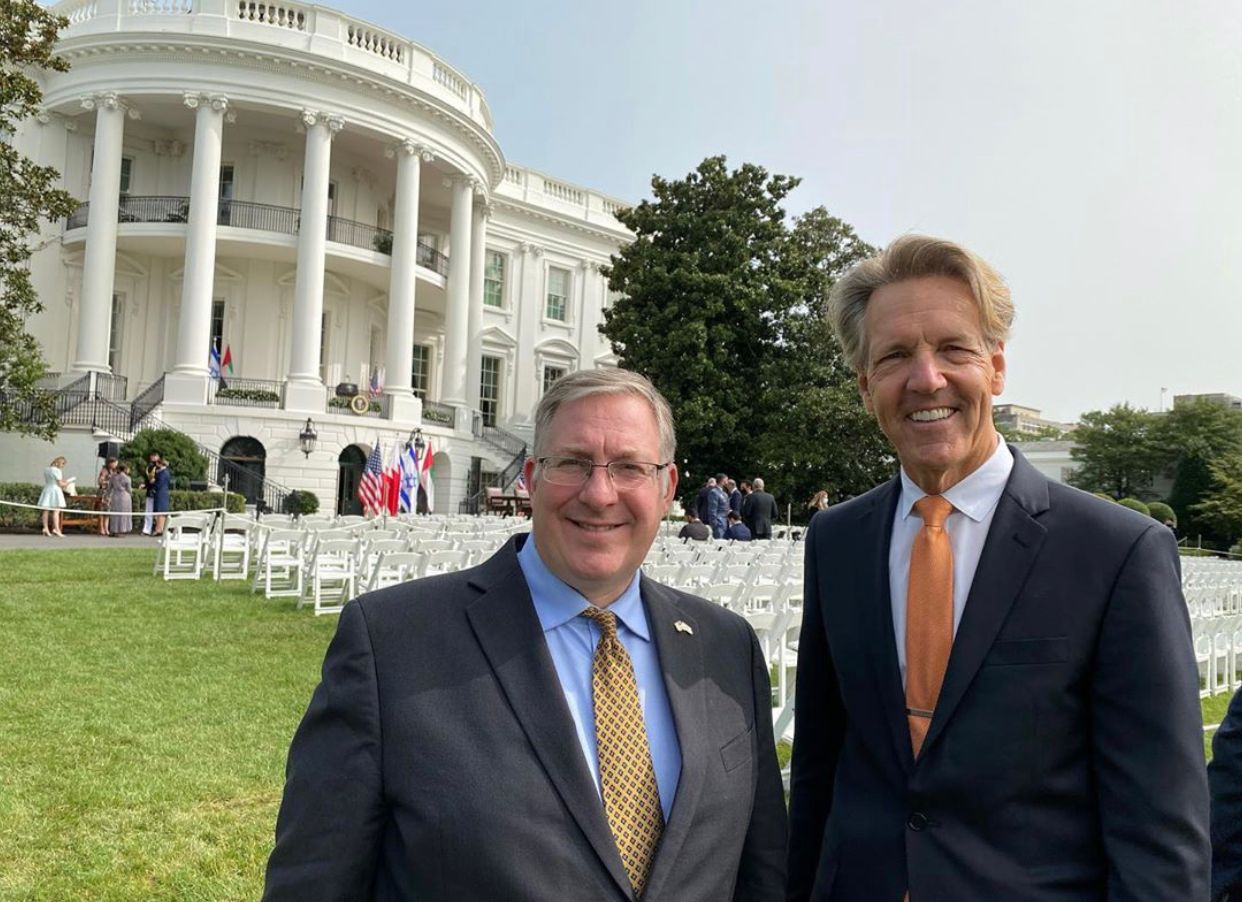
From the South Lawn, he and I fed live updates of the ceremony to our ALL ISRAEL NEWS team in Jerusalem for them to post along with video of interviews we conducted with major Jewish, Christian and congressional leaders in attendance.
After welcoming Prime Minister Netanyahu and his wife, Sara; Emirati foreign minister Sheikh Abdullah bin Zayed; and Bahraini foreign minister Abdullatif bin Rashid Al Zayani, President Trump said, “We’re here this afternoon to change the course of history. After decades of division and conflict, we mark the dawn of a new Middle East. Thanks to the great courage of the leaders of these three countries, we take a major stride toward a future in which people of all faiths and backgrounds live together in peace and prosperity.”
“In Israel’s entire history, there have previously been only two such agreements,” Trump continued. “Now we have achieved two in a single month, and there are more to follow….Together, these agreements will serve as the foundation for a comprehensive peace across the entire region—something which nobody thought was possible, certainly not in this day and age.”
The president thanked his remarkable Middle East peace team: Vice President Pence, Secretary Pompeo, National Security Advisor Robert O’Brien, Jared Kushner, U.S. special representative for Iran Brian Hook, Avi Berkowitz, and U.S. ambassador to Israel David Friedman.
“This day is a pivot of history,” said then-Israeli Prime Minister Benjamin Netanyahu. “It heralds a new dawn of peace. For thousands of years, the Jewish people have prayed for peace. For decades, the Jewish State has prayed for peace. And this is why, today, we’re filled with such profound gratitude.”
Thanking President Trump, he added, “This is not only a peace between leaders, it’s a peace between peoples. Israelis, Emiratis, and Bahrainis are already embracing one another. . . . This [was] unimaginable a few years ago.”
Speaking in Arabic to the entire Arab world, UAE foreign minister Sheikh Abdullah bin Zayed (ABZ), who is also the crown prince’s brother, said, “We are already witnessing a change in the heart of the Middle East, a change that will send hope around the world.”
Addressing Prime Minister Netanyahu, said, “Thank you for choosing peace and for halting the annexation of Palestinian territories, a decision that reinforces our shared will to achieve a better future for generations to come.”
Continuing his remarks, ABZ added, “For us in the United Arab Emirates, this accord will enable us to continue to stand by the Palestinian people and realize their hopes for an independent state within a stable and prosperous region. This accord builds upon previous peace agreements signed by Arab nations with the State of Israel. The aim of all these treaties is to work toward stability and sustainable development.”
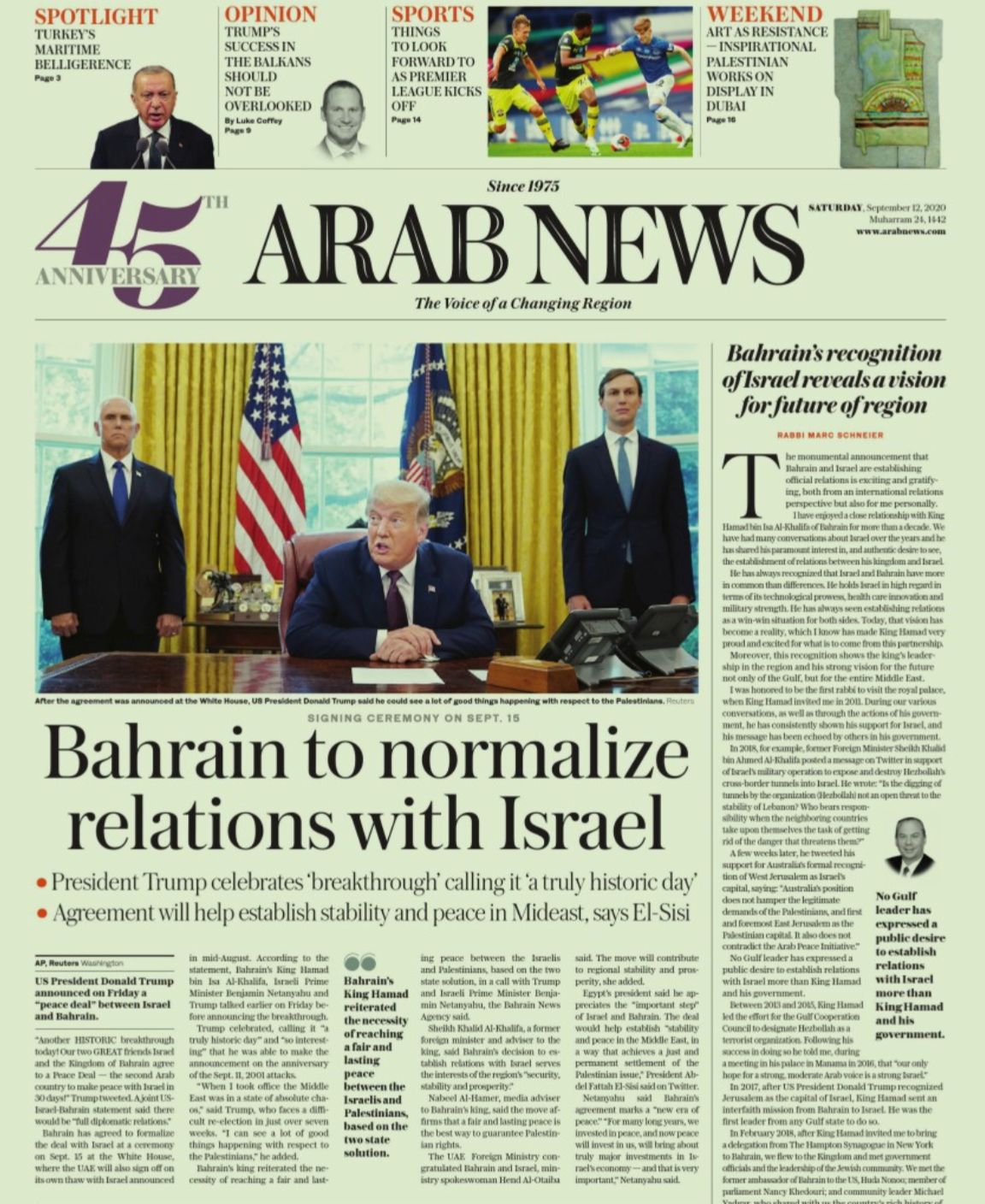
Abdullatif Al Zayani, the new Bahraini foreign minister, echoed these same sentiments.
“Today is a truly historic occasion,” he said, “a moment of hope and opportunity for all the peoples of the Middle East and, in particular, for the millions in our younger generations.
“The declaration supporting peace between the Kingdom of Bahrain and the State of Israel is a historic step on the road to genuine and lasting peace, security, and prosperity across the region and for all who live there regardless of religion, sect, ethnicity, or ideology.
“For too long, the Middle East has been set back by conflict and mistrust, causing untold destruction and thwarting the potential of generations of our best and brightest young people. Now I’m convinced we have the opportunity to change that….It is now incumbent on us to work urgently and actively to bring about the lasting peace and security our peoples deserve. A just, comprehensive, and enduring two-state solution to the Palestinian-Israeli conflict will be the foundation, bedrock of such peace.”
“We have shown today that such a path is possible, even realistic….We can see before us a golden opportunity for peace, security, and prosperity for our region.”
“Let us together, and with our international partners, waste no time in seizing it.”
Sadly, during the event, Palestinian terrorists in Gaza fired rockets at southern Israel.
As I fed material back to our team in Jerusalem and live-tweeted from the South Lawn, I interviewed a range of Jewish leaders, including Malcolm Hoenlein, vice chairman of the Conference of Presidents of Major American Jewish Organizations, who has led dozens of faith diplomacy missions to meet with Arab and Muslim leaders; and the conference’s CEO, William Daroff. Both were deeply moved by the moment.
Daroff told me we were witnessing “a new tide, a new path . . . of peace in the Middle East, with countries all over the Arab world, the Gulf States coming together and recognizing Israel’s place to be as a legitimate member in the family of nations and as a country that they want to call a friend and partner.”
I also interviewed Pastor John Hagee, founder of Christians United for Israel (CUFI), the leading pro-Israel political organization in the U.S., with some 9 million members.
“This is a day that people six months ago would have said, ‘This could not possibly happen,’” Hagee told me. “But because of the efforts of our president and Benjamin Netanyahu, the sons of Abraham are coming together for the first time in thousands of years.”
“This is nothing short of a literal miracle, and if they don’t give the president the Nobel Peace Prize for this, they should stop giving it away,” Hagee added. “It is [also] a day that puts Iran on the defensive, because Israel just shuffled the deck and they’ve got the trump cards now.”
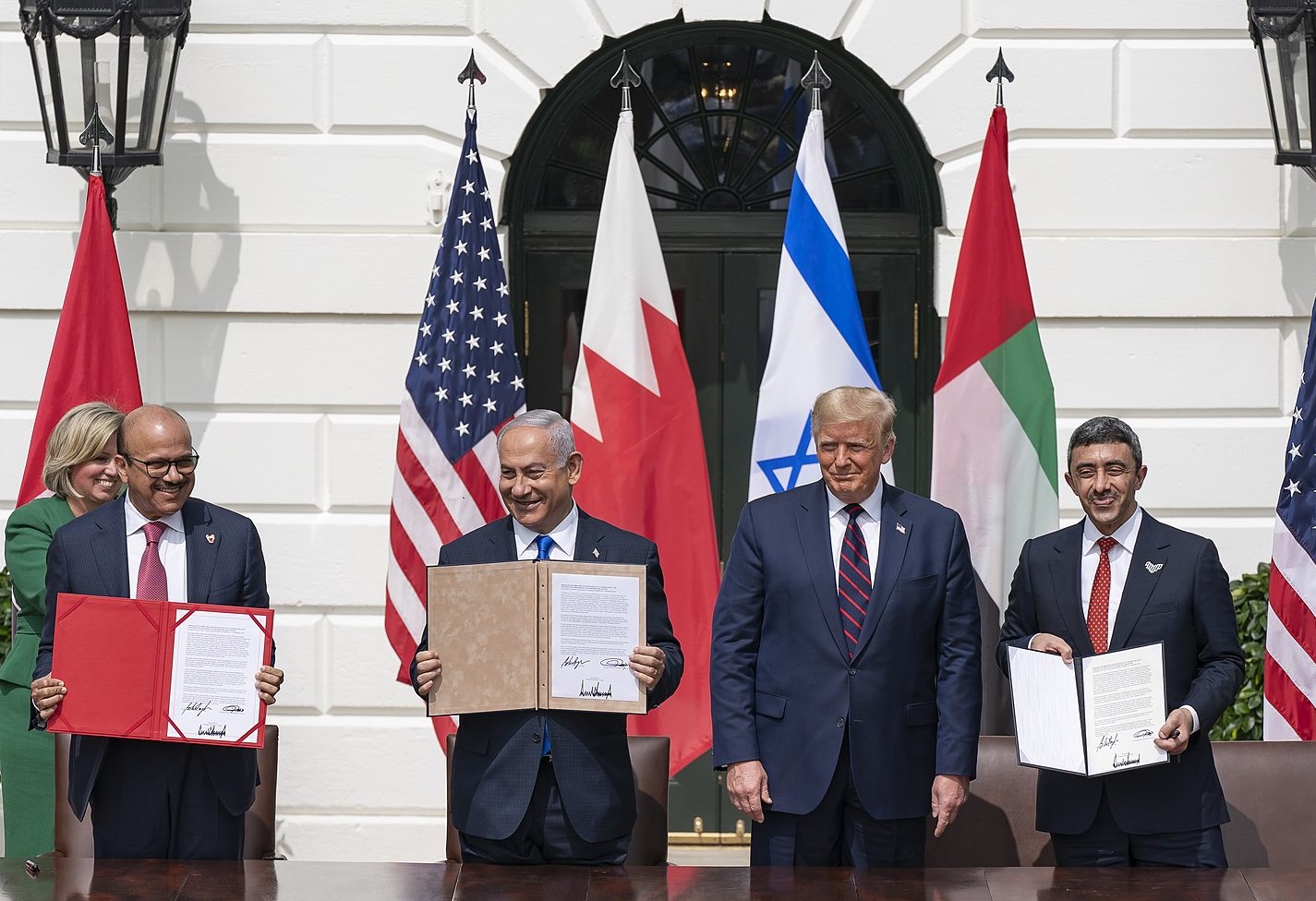
INTERVIEWING VICE PRESIDENT PENCE
Jewish people have a Hebrew expression we use on Passover.
“Dayenu.”
It means “this alone would be enough.”
That’s the word that kept echoing in my heart that day. Just knowing that the Lord had dramatically answered the prayers of millions around the world for peace would have been a dayenu.
Getting invited to the White House to witness not just one but two Gulf Arab states sign peace treaties with Israel would have been a double dayenu.
But I had also been invited to meet with and interview my old friend Vice President Mike Pence immediately following the ceremony to discuss the historic moment and his reaction to it.
Better yet, I was joined by two Christian journalist friends: David Brody, chief Washington correspondent and political analyst for CBN News; and Erick Stakelbeck, a Middle East reporter and host of a program on the TBN network.
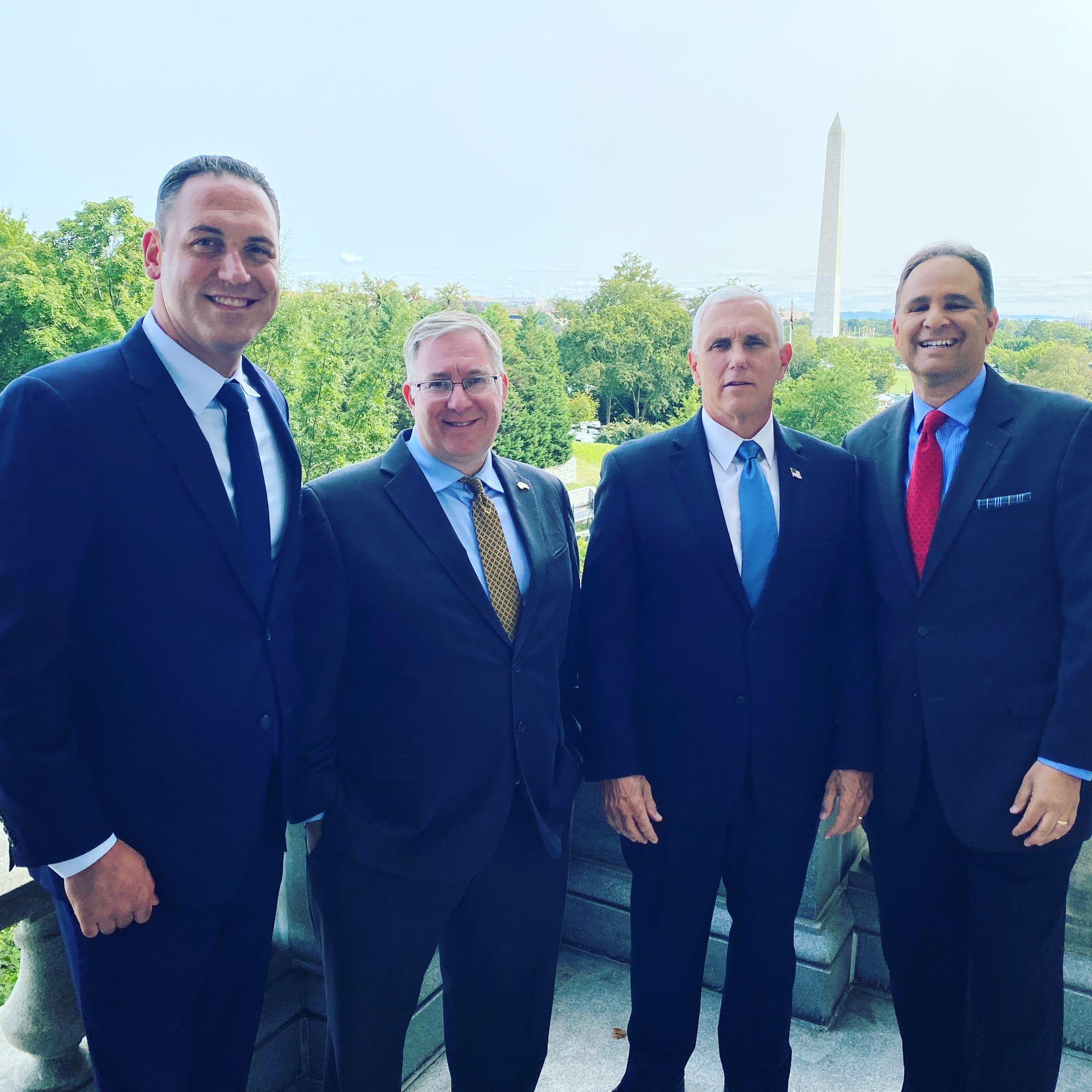
We were scheduled to meet with the vice president in his ceremonial office, but first we had to undergo a COVID-19 test. It was the first time for me. Both of my nostrils were swabbed three times by a member of the White House Medical Unit. Then the swab was inserted into a high-speed medical analyzer.
Only when it was confirmed that none of us had the virus did the VP enter the room, coming directly from a private luncheon with the president, the prime minister, and the two foreign ministers.
Pence told us that the signing ceremony for the peace treaties and the Abraham Accords was “deeply moving” to him, both as a national leader and as an evangelical Christian.
He called Israel “our most cherished ally” and said the president had decided from the very beginning of his administration that he was going to do everything he could to strengthen the U.S.-Israel alliance and try to advance peace.
Pence acknowledged there were a host of critics who had been saying that the administration had no idea how to make peace and might worsen the situation in the Middle East.
But the Abraham Accords were hard evidence, he said, that dramatic progress was being made – and, he told us, “There are more Arab nations that are preparing to make peace with Israel.”
The vice president noted the strong bipartisan support for Israel in the U.S. over the past seven decades.
He specifically noted that it was a Democrat, President Harry Truman, who recognized the State of Israel just minutes after David Ben Gurion declared independence on May 14, 1948.
Pence said that President Trump was continuing that bipartisan tradition of strengthening Israel and securing peace.
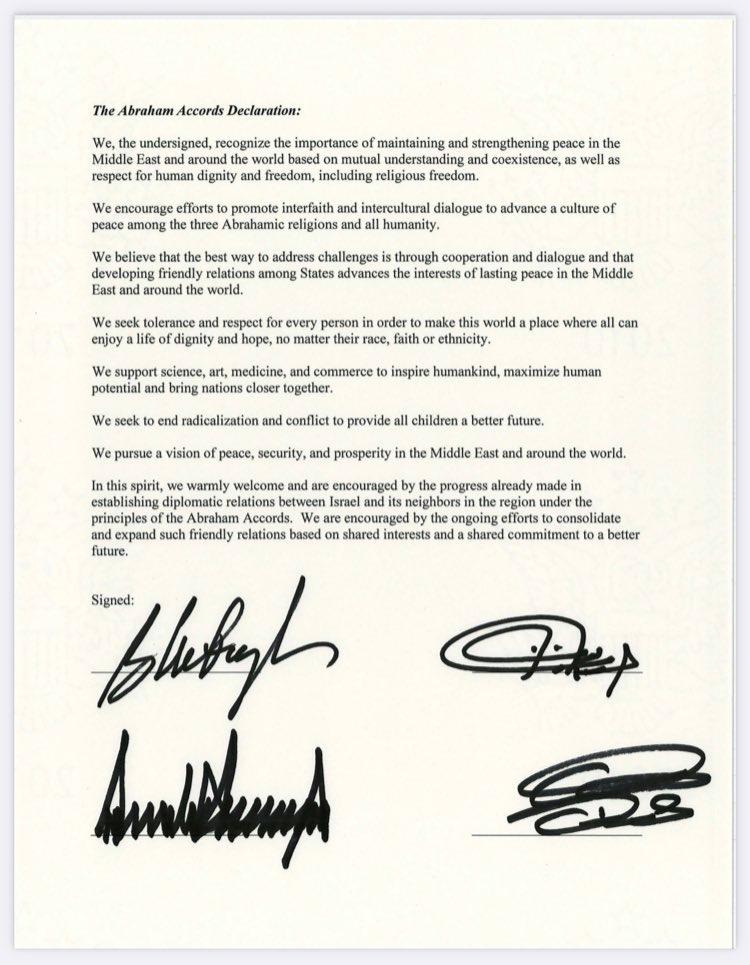
THROWING OUT THE OLD PLAYBOOK
I asked the vice president why Trump was succeeding where his recent predecessors had failed at peacemaking in the region.
Pence told me the reason was that Trump had chosen to throw out the old playbook.
“The president made a decision from the moment he came into office that he wasn’t going to do things the same old way,” Pence said. “He wasn’t going to keep rewarding Palestinian refusals to negotiate. He wasn’t going to keep giving them financial support for that.”
After trying to build trust with Palestinian Authority president Mahmoud Abbas but being repeatedly rebuffed on a range of important matters, Trump moved the U.S. Embassy to Jerusalem. He cut U.S. aid to the PA. He recognized Israeli sovereignty over the Golan Heights.
And he laid out a vision for peace that called for the creation of a Palestinian state—with even more land than it currently controls—so long as the PA implemented a wide range of serious internal reforms and the state was demilitarized and could not endanger Israel.
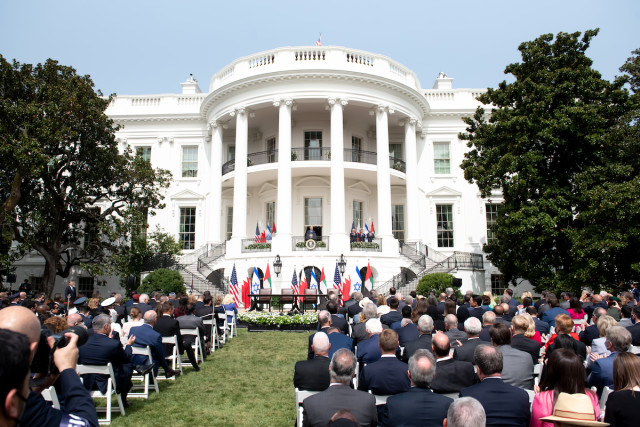
Pence noted that Trump’s first trip overseas was to Saudi Arabia, where he met with the leaders of fifty Arab and Muslim countries, after which he went to Jerusalem to meet with the leadership there.
These moves made it clear, Pence said, that advancing Middle East peace was a top priority for the administration right from the beginning.
“I call Israel our most cherished ally, and I believe that, literally from the founding of this nation, the desire to see the Jewish people restored to their historic homeland was sown into the hearts of the American people,” Pence told us.
“They prayed for that day to come, labored for that day to come, and in 1948 it came. And from this White House, it would be President Harry Truman who made the United States the first nation on earth to recognize the Jewish state of Israel.”
“But I have to tell you, as a strong supporter of Israel, I couldn’t be more proud of the leadership President Donald Trump has provided that has brought us to this day. I mean, first he made it clear that if the world understands nothing else, they need to understand this: America stands with Israel.”
“We’ve reaffirmed our strong commitment to Israel, as perhaps no other administration in my lifetime,” Pence added. “But at the same time, President Trump made his very first trip overseas to go to a capital of the Arab world. He brought together more than fifty [Arab and Muslim] nations to form a new alliance to counter radical Islamic terrorism. And we began to forge relationships within the Arab world.”
Pence explained that Trump’s decision to isolate and pressure the Iranian regime—rather than trying to placate Tehran as Obama had done—had been a key to rebuilding trust with Arab leaders.
“President Trump demonstrated that as we stand strongly with Israel, but also stand for peace, then we can see history unfold,” he said. “What happened today . . . is the beginning of a new era of peace for Israel and for the wider Arab world. And it’s very humbling for me to be some small part of it.”
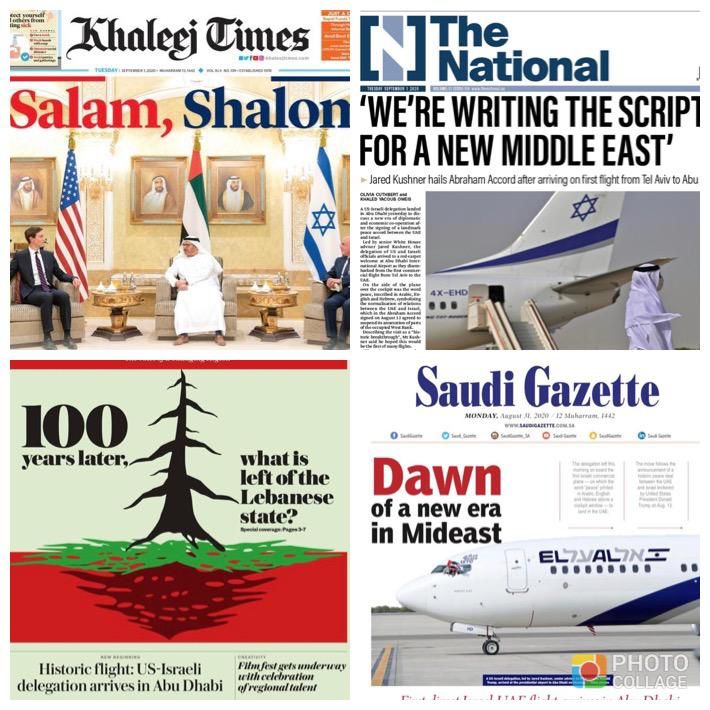
“DEEPLY MOVING”
That night, I was interviewed on Fox News.
“Joel, this is an area where you have lived and worked for years and years,” anchor Shannon Bream began. “What does it mean today to see this come together, as critics say, ‘Listen, these entities—Bahrain and the UAE—were not at war with Israel. They already had some trade and commerce’? They’re downplaying this and saying the president shouldn’t get credit. What do you say?”
“Oh, goodness, well, if you can’t get credit for making the first Arab-Israeli peace deals—and two of them, I might add—in twenty-five years, I don’t know what you get credit for,” I told her.
“Look, for me, it was an emotional moment. . . . To sit there, on the lawn—as a novelist, as a Middle East analyst, starting this new website, All Israel News, but also having two sons that have served in the Israeli army—I want this peace. And to see two Arab leaders and the prime minister of Israel and the president of the United States making these deals, it was deeply moving to me personally.”

Joel C. Rosenberg is the editor-in-chief of ALL ISRAEL NEWS and ALL ARAB NEWS and the President and CEO of Near East Media. A New York Times best-selling author, Middle East analyst, and Evangelical leader, he lives in Jerusalem with his wife and sons.




